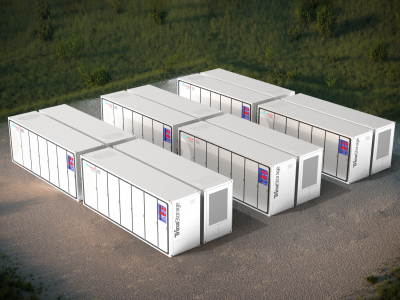Summary Of Forum Day 3
 Berlin, Germany—A variety of speakers shared their knowledge and expertise with the delegates on the topics of wind, solar, wind-gas, solar, residential storage, and power electronics.
Berlin, Germany—A variety of speakers shared their knowledge and expertise with the delegates on the topics of wind, solar, wind-gas, solar, residential storage, and power electronics.
One of the speakers in the morning was Dr. Matthias Vetter of the Fraunhofer Institute for Solar Energy Systems, who presented on optimized hybrid PV battery systems. Citing examples of the levelized cost of electricity in Uganda and water treatment systems in Egypt, Dr. Vetter showed how hybridization of Diesel mini-grids with PV was economically viable. He also explained the need for standardization of communication between manufacturers of different components was necessary.
From the Catalonia Institute for Energy Research (IREC) Spain, researcher Marcel Skoumal provided a plethora of data on different current flow battery technologies. Marcel used the data to explain the intricate chemical concepts behind the batteries as well as their structural features.
Representing Elektro-Slovenija was Jan Kostevc, who presented on the topic “Potential Applications of Energy Storage Devices in the Slovenian Transmission Network”. Elektro-Slovenija, a TSO, had much to benefit from energy storage, he suggested. TSOs’ main usage of energy storage could be in primary and secondary frequency control, although it could also be utilized to provide other ancillary services. Doubts still remain as to whether TSOs can own and operate energy storage devices themselves, and if the cost of ancillary services from energy storage devices could be comparable to current costs.
On the topic of wind-gas, Anders Hansen of Energinet explained Denmark’s decision to reach 50% of total electricity consumption powered by wind by 2020, and 100% renewable by 2050. At present, wind accounts for only 20% in Denmark. To reduce usage of biomass, which is a scarce resource, flexible integration of fluctuating electricity (namely, wind and solar) with the efficient use of biomass and waste is needed, and that is where storage is needed.
Finally, concluding Day 3 was the panel discussion, moderated by the chairman of the day, Jurgen Weiss, Principal of The Brattle Group. The panel discussion featured four panelists putting their solutions forward with regards to the reduction in cost of energy storage by partnerships between batteries and smart inverters.
If you want to know more about this and other topics directly from end users of energy storage technologies join us at one of these annual events: The Energy Storage World Forum (Grid Scale Applications), or The Residential Energy Storage Forum, or one of our Training Courses.





